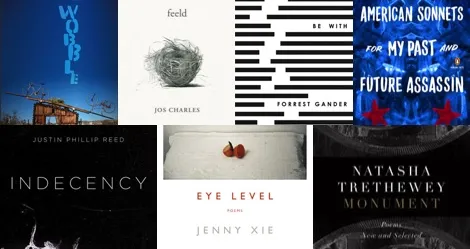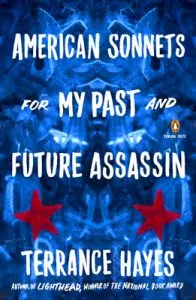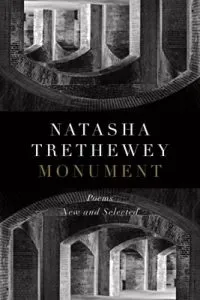
2018 National Book Award Longlist for Poetry
This content contains affiliate links. When you buy through these links, we may earn an affiliate commission.
The national book foundation just released its longlist for the 2018 National Book Award for poetry. The 2018 poetry longlist includes both household names and new contenders with books from Big Five publishers and perennial favorite small presses. With a judging panel made up of beloved poets, like Mary Jo Bang and Danez Smith, the picks for this year’s National Book Award for Poetry are sure to inspire. If you haven’t read them already, they should all go on your TBR list.

Monument: Poems New and Selected by Natasha Trethewey
A former poet laureate of the United States, Trethewey is back with a multifaceted collection that speaks to the problems of cultural erasure and white supremacy. Drawing on art and events from the past and present, Trethewey weaves her own history with the resilience of the most downtrodden.
The 2018 National Book Award for Poetry Longlist
Wobble by Rae Armantrout:
Armantrout is no stranger to prizes. Her poetry has already won the Pulitzer Prize. Now this could be her year for the NBA. Wobble is both playful and foreboding, calling on and calling out the wasteland that could have been the American Dream.feeld by Jos Charles:
In feeld, Charles illuminates the nuances of the trans experience by creating a linguistic conversation with the past. With language that feels Chaucerian but is wholly her own, Charles calls the reader to look at powerful ideas that usually remain hidden.Be With by Forrest Gander:
Gander weaves many languages and experiences in these poems that draw on his background as a translator. With some poems like hymns and others like cultural meditations, this collection is eclectic, personal, and timely.









